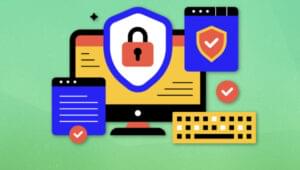Procrastination is one of the biggest enemies we have to our personal productivity. Thinking about doing something and planning to do it are fine, but what if we fail to move ahead?
Procrastinating the unimportant items in our day is a useful talent. The problem for many, however, is that we are procrastinating the important and crucial items in our day, reducing our personal productivity and increasing our stress levels.
Here are five pointers to help you to better overcome procrastination. (You can implement them now or perhaps tomorrow or, better yet, next week!)
1. Daily planning the night before.
"People don’t plan to fail but they sometimes fail to plan". Without a plan of action in place before you arrive for work it is real easy to get caught up in "stuff". The phone rings, someone drops by and you direct your time responding to the loudest voices demanding your attention rather than to the most important priorities on your plate. A plan of action, prepared the night before is like a roadmap for the next day. You know what your next step ought to be to get you into productive action and away from procrastination.
2. Work with a clean desk.
"Out of sight, out of mind." The reverse of that is just as true. When it’s in sight, it’s in mind and most of us cannot help but be distracted and our time is then directed to the less important and easier tasks causing us to put off the more important tasks. Working with a clean desk or clean work environment permits us to have only the most important task before us so that we can focus all of our attention on that task without other visual distractions.
3. Reduce large projects to bite-sized pieces.
How do you eat an elephant? One bite at a time. Tomorrow you plan to work on a three-hour project. The problem is, many of us do not get three hours to work on any one item. We have to contend with interruptions, meetings, etc. (I don’t know that I even have an attention span that lasts for three hours!) And we often wind up procrastinating working on this task because "there’s not enough time to get this done". So, instead of scheduling the entire three-hour project for tomorrow, schedule a small bite, a step or two that might take 20 or 30 minutes. Then put the next step on the next day’s To Do list and the next step after that on that next day’s list, etc. It may take several days, but you will get that elephant eaten up, one bite at a time.
4. Plan around interruptions.
Interruptions tend to occur in identifiable patterns. I get most of my interruptions early in the day versus later in the day. I get most of my interruptions early in the week versus later in the week. So, if I plan a big project first thing Monday morning, I’m creating stress because as soon as I begin, interruptions arrive and re-focus my attention causing me to procrastinate what I really wanted to do. It is so much easier swimming downstream with the current rather than bucking the tide. Therefore, I plan those larger projects for later in the day and later in the week when I tend to get fewer interruptions.
5. Assign deadlines.
Have you ever failed to achieve a New Year’s resolution? If so, that probably happened because you did not set a deadline. Deadlines move us to action. Without a deadline, things wind up in our "as soon as possible" pile, a "Never Never Land" where items will get attended to "someday", "when I get the time". Create a deadline and you will be moved to action.
Sign up now for your free "TIMELYTIME MANAGEMENT TIPS". Just click here and select "subscribe".



































































































